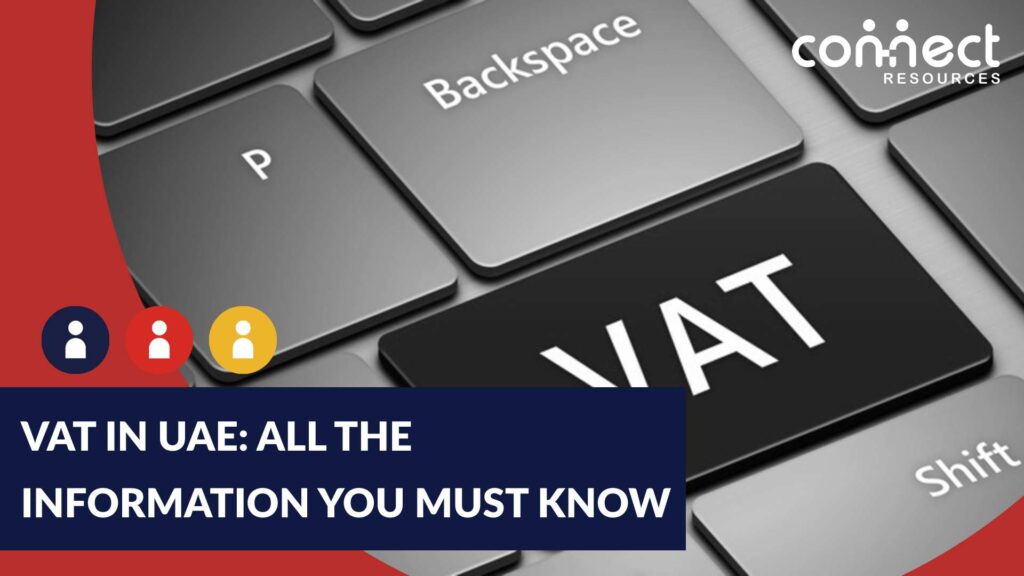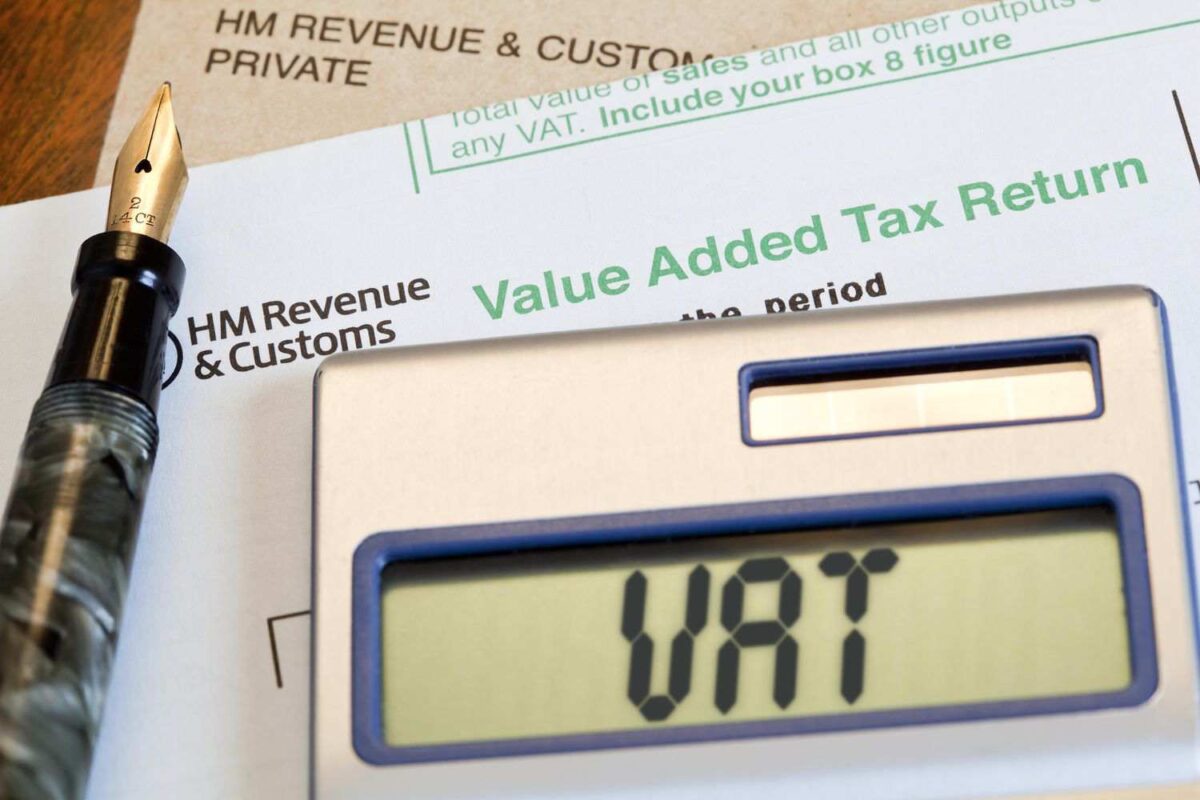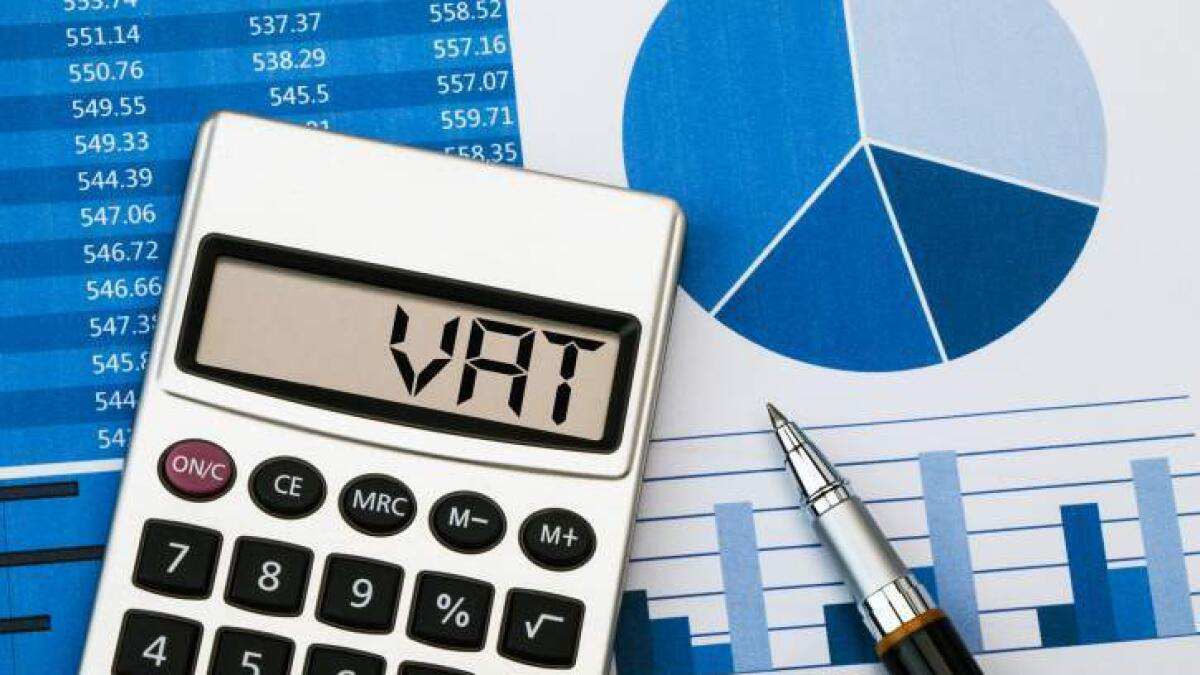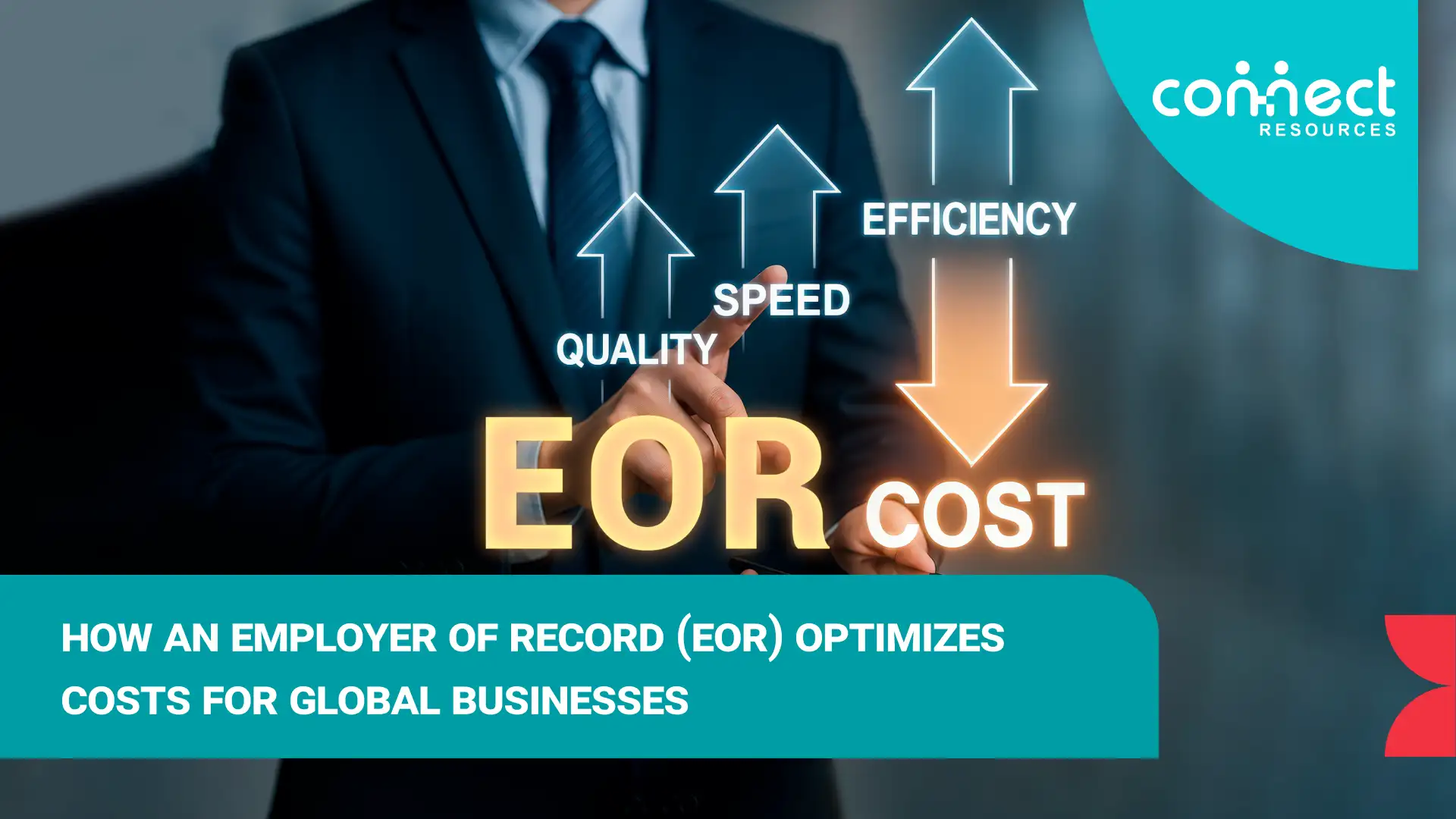The UAE is known for being a tax-friendly country. Nevertheless, in recent years, it has made some changes concerning the VAT in UAE. Therefore, if you are a UAE Resident, an investor, a tourist, or any other, you must know everything about it.
In this article, you will learn everything about this issue. We understand how difficult can be to comprehend the VAT in UAE, this is why we have compiled a complete guide about how to understand the UAE VAT law and everything that surrounds it. Let’s observe:
- Do you know what VAT is?
- Learn the difference between VAT and sales tax
- Here we have everything about the VAT for businesses
- See the most recent changes made to the VAT in UAE
1. Do you know what VAT is?
Before starting to dive deep into the VAT rules in UAE, it is important to understand what it is. First of all, a tax is what the government uses to raise revenue. Thus, this revenue then it is used to pay for public services, such as public hospitals, schools, infrastructure, and others.
In this regard, there are many types of taxes. But, they are classified broadly into two types:
- A direct tax: the person on whom it is imposed pays the tax directly to the government. One example of this may be the Corporate Tax in the UAE.
- An indirect tax: the government uses an intermediary, like a retail store, to collect the tax from the person that ultimately pays it. Some examples are the VAT and the Sales Tax.
Thus, what is VAT in UAE? It is the Value Added Tax, an indirect tax that could be a type of general consumption tax. Many countries around the world implement VAT and it is charged at every step of the supply chain.
This means that businesses collect and account for the tax while ultimate consumers generally bear the cost of the VAT. Then, the business pays the government the tax collected.
Thus, if you are planning to do the Business Setup in Dubai, you have to consider if you are eligible for charging VAT.
1.1 Understanding the implications of VAT on individuals
Since UAE VAT is a consumption tax, individuals will have to pay for it for the majority of transactions of services and goods. However, there may be a limited number of exceptions.
Therefore, an individual will have to consider the expenses he or she will incur since this will slightly increase the cost of living.
1.2 The implications of VAT on businesses
When it comes to the implications of VAT on businesses, as per the ministry of finance VAT, businesses act as tax collectors on behalf of the government. Therefore, they have to document their business income, costs and VAT carefully since they will be responsible for it.
Businesses must charge the VAT on goods or services at the prevailing rate to their customers. But, since they also have to purchase from suppliers, they can reclaim the difference or pay it to the government.
This is why sometimes multinational businesses need a payroll transformation manager because understanding how to manage taxes can be very difficult.
1.3 See how VAT is collected
If the business falls under the criteria for charging VAT, first of all, it must carry out the registration for VAT in UAE ministry of finance.
Thus, a VAT-registered business must collect the amount established by the government by bearing the 5% increase in the cost of taxable goods and services.
Therefore, every person that purchases the UAE is subject to VAT tax. So, even if you are in the UAE with your five-year multi-entry tourist visa, and you purchase a taxable good, you have to pay it.
1.4 VAT Purposes on government entities
The UAE has established that supplies made by government entities are also subject to VAT. This is to ensure that these entities do not have an unfair advantage over companies that belong to the private sector.
Nevertheless, some supplies made by government entities can be exempt from VAT if they are not competing with the private sector. Also, this applies if the entity is the sole provider of said supplies. Similarly, some government entities are entitled to VAT refunds.
2. Learn the difference between VAT and sales tax
Sometimes, understanding legal definitions can be challenging. Therefore, some businesses or individuals may confuse the VAT in UAE with the corporate tax on business profits or with the sales tax.
Since the Sales Tax gets oftentimes confused with the VAT UAE, it is important to clarify what it is. The sales tax is also a consumption tax, and for the general public there may be no difference in how they work, but they are not the same.
For example, sales tax in many countries is just imposed on some goods. Moreover, it is just seen in the final sale to the customer.
Therefore, the VAT rate in UAE is different because it is imposed throughout the supply chain, not just for the consumer. Also, as per the UAE federal tax authority, the VAT is imposed on some services too, not only on goods.
In this regard, businesses in the UAE have to deal with VAT. Thus, it is important to prevent errors by ensuring accurate data when it comes to calculating taxes.
3. Here we have everything about the VAT for businesses
Considering the best business ideas in Dubai can lead you to want to establish a corporation in this place. However, as a business, you must know how to stay in compliance, and this includes understanding the VAT in UAE.
3.1 Explaining the criteria for registering for VAT
As per the VAT in Dubai, businesses have to register for VAT according to the following:
- Mandatory registration: Its taxable supplies and imports exceed the mandatory registration threshold of AED 375,000.
- Voluntary registration: Its taxable supplies do not exceed the mandatory registration threshold but exceed the voluntary registration threshold of AED 187,500. Thus, it is optional for these businesses to make the registration.
Businesses must consider if they fall under the criteria, to determine if they must register. So, if you have an Emiratisation recruitment agency or any other company, you have to check if you are eligible.
3.2 Register for VAT easily
To carry out the registration for the Value Added Tax in Dubai, you have to use the eServices of the corresponding VAT authority.
You have to enter the FTA official portal and create an account. Then, you can proceed with your registration. The best part is that if you have any doubts, you can always contact the FTA through an enquiry form or by a call.
3.3 Here is what VAT-registered businesses must do
Understanding payroll accounting will allow you to stay in compliance with taxes. Thus, as a business registered in the VAT, you have to know what your responsibilities are.
As per the VAT implementation in UAE, businesses must generally:
- Charge VAT to customers on corresponding taxable services or goods they supply.
- Reclaim VAT they have paid for business-related services or goods.
- Keep records of VAT so the government can check them.
- If you have paid more than what you have charged, you can reclaim the difference. But, if you have charged more than what you have paid, you have to pay the difference to the government.
So, if you want to achieve your strategic goals as a company, you must consider staying in compliance regarding taxes. Thus, you have to report regularly to the government the VAT charged and paid as a business.
3.4 What about VAT in real estate
Real estate is a major business in the UAE. In fact, foreign individuals can get their residency with a UAE Property Visa by just investing in real estate in any of the Emirates.
However, when it comes to Dubai VAT, it is important to understand the VAT treatment:
- If it is a residential property, they are generally exempt from VAT. This way, the government ensures that it is not an irrecoverable cost for those that have invested in property.
- Commercial property supplies (sales or leases) are taxable at the established rate of 5%.
In this regard, if you manage a commercial property, it can be useful to count on an Administrative Services Organization (ASO).
3.5 Are there zero-rated sectors?
As per the UAE tax 2018 and according to the new legislation, there are zero-rated sectors. This means that there are businesses where VAT will be charged at 0%.
The zero-rated supplies are the following:
- Goods and services exported outside the GCC.
- International transportation.
- Supply of certain means of transportation (such as ships or aircraft).
- Certain investments made in precious metals.
- Newly constructed residential properties (within the first three years of construction).
- Certain education services as well as the supply of relevant goods and services.
- Certain healthcare services as well as the supply of relevant goods and services.
3.6 See which sectors are exempted from VAT
In terms of VAT exemption, it is important to note that they are not the same as zero-rated. The sectors that belong to the UAE VAT exemptions are the following:
- Some financial services (it is further clarified in the legislation of VAT in UAE).
- Residential properties.
- Local passenger transport.
- Bare land.
As an investor, you may want to establish a foreign legal entity in the UAE or any other type of business. So, you have to check whether you belong to the exempted sector or not.
3.7 Partial exemption
Lastly, there are partial exemptions regarding the VAT. The partial VAT exemption UAE is as follows:
- A VAT-registered person can recover the input tax which has incurred on its business expenses if it is related to a taxable supply made or indented to be made. However, if the expense is related to a non-taxable supply, the person may not recover the input tax paid.
- In some cases, an expense may be related to a non-taxable and taxable supply. In this case, the registered person has to apportion input tax between taxable and non-taxable supplies.
The input tax is the ratio of recoverable to total, and businesses must use it as a basis when it comes to apportionment.
4. See the most recent changes made to the VAT in UAE
The VAT law has been changing in the past years. First, the UAE Government introduced the VAT on January 2018. Previously, the UAE had no VAT, but since that date, the VAT FTA has been imposed.
Thus, the UAE VAT rate was set at 5%. But, recently, the UAE made some amendments to the provisions of the VAT UAE 2018 law. In this regard, these changes are effective from 1 January 2023.
According to the law, the FTA made a total of 24 changes to the Decree-Law No. 18, 2022. Therefore, businesses with VAT accounts have to consider all these modifications to ensure compliance.
If dealing with taxes is a hassle, then you have to invest in payroll outsourcing services to get support with this matter.
4.1 Changes to the VAT law explained
According to the new VAT law, the changes are the following:
- The new law now includes new definitions for some terms such as Tax Evasion, Tax Assessment, Pure Hydrocarbons, and others.
- Registered persons can apply for an exception from VAT registration provided all of their supplies are zero-rated. Or, if they do not make any supplies other than zero-rated ones.
- Now there is a 14-day period to issue a tax credit note about settling output tax.
- The FTA may deregister persons if deemed necessary in specific cases.
- There were added additional goods subject to zero-rate of VAT.
Nevertheless, the VAT rate did not change, so it stays at 5 per cent.
If you want to dive deep into the different UAE regulations and laws, you can visit our blog. We have plenty of information about the UAE’s new Labour Law, the UAE’s new residency scheme, the UAE Employment Law, and much more.












